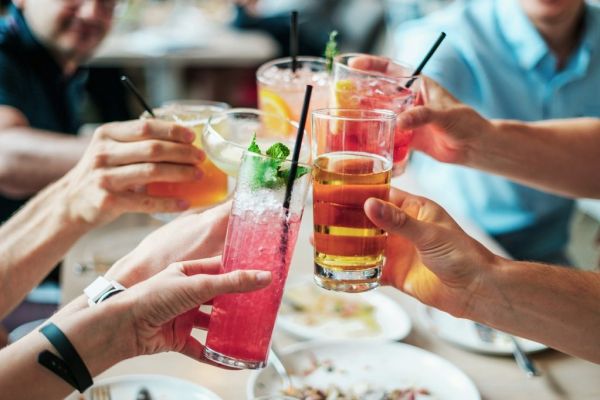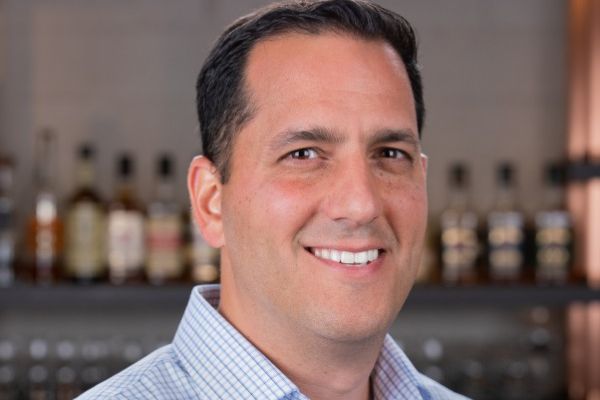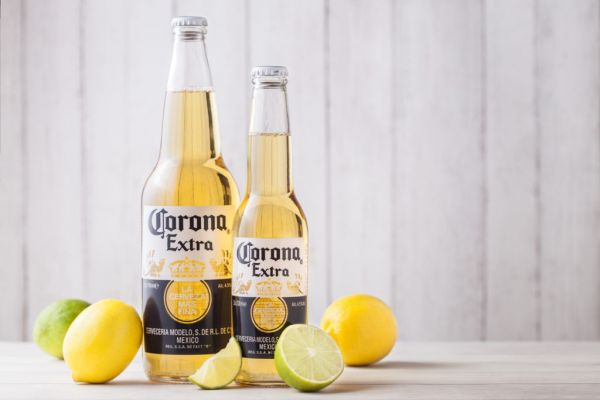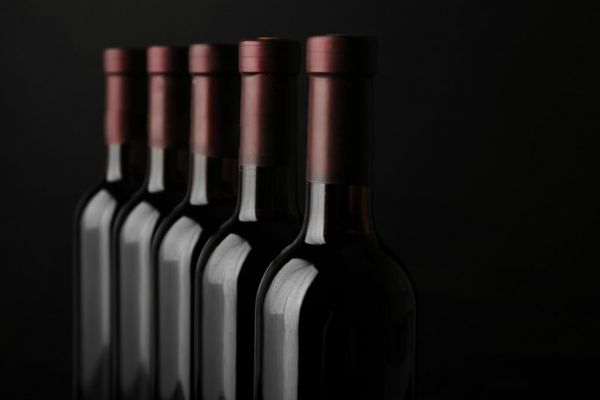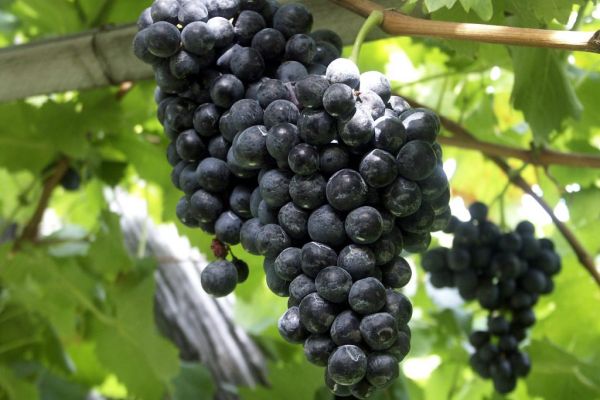Drinks companies are converging on an unusual cocktail recipe: less alcohol.
In bars from London to New York, sales of aperitifs such as Aperol, Lillet and Martini Rosso are growing rapidly as younger drinkers in particular opt for lower-alcohol concoctions over stronger traditional cocktail spirits like vodka.
As a result companies such as Italy's Campari, Britain's Diageo and France's Pernod Ricard are snapping up aperitif brands or launching new marketing drives for existing ones.
Lower-Strength Spirits
Global sales volumes of spirit-based aperitifs - which are half the strength of regular spirits - rose 7.4% last year, while vodka fell 6%, brandy declined 1.3% and rum sales lost 0.8%, according to new data published on Thursday by beverage market research firm IWSR.
Campari, Pernod Ricard and Diageo executives all told Reuters they viewed the rise of these lower-strength spirits, which have their roots in Italy and France, as a long-term trend and a potentially important future driver of growth.
The rising popularity is partly fuelled by young people wanting to stay more in control and having a keen awareness of their social-media image, according to market researchers and drinks companies. It comes against the backdrop of stagnating consumption of alcohol in much of the developed world.
Sliver Of Spirits
However, aperitifs still represent a sliver of the overall spirits market, slightly over 2% of sales volumes, and there is also no guarantee that the rise in sales will represent more than a passing fad in big markets like the United States.
Campari, whose drinks cabinet has historically been skewed towards aperitifs, has a head-start and is reaping the benefits with Aperol, the world's best-selling aperitif brand. Aperol sales - in decline just five years ago - leapt 19.5% last year, even as the firm's top vodka brand SKYY fell 3.5%.
In the United States - the biggest source of drink industry profits - Aperol has had the strongest growth of any spirit over the past year with a 59% leap, according to Nielsen researchers.
Campari CEO Bob Kunze-Concewitz told Reuters that per-capita consumption of Aperol in its core markets of Italy and Austria was still 100 times greater than in the United States. "This gives us an indication of the room for growth," he said.
After an advertising campaign last summer in the New York area, Campari plans a similar drive in other areas of the United States, targeting big cities and high-end bar and restaurants. The group has expanded its US distribution network and sales team over the past two years.
Rivals Crash Party
While Campari is market leader in aperitifs, it is a much smaller player in the wider industry than Diageo and Pernod Ricard, the two biggest companies by sales. Now the two big fish are looking to challenge Aperol, a bright orange liqueur usually mixed into a 'spritz' with prosecco and soda.
Pernod Ricard told Reuters it was marketing Lillet more aggressively outside its home market of France. The wine-based aperitif has taken off in Germany and is now growing by a double-digit percentage rate in Western Europe and North America, it added.
Diageo, the world's largest drinks group, dipped into the aperitif market with its purchase of craft vermouth brand Belsazar in March.
Both Diageo and Pernod Ricard told Reuters they were looking at further investments in the lower-alcohol spirit bracket.
Bernstein analyst Trevor Stirling said they had a long way to go to catch up with Campari in this field. "Other people are experimenting, but nothing yet has really achieved the scale of anything close to Aperol."
There is no evidence that drinking lower-strength drinks means a drinker will consume less alcohol overall, analysts say. One study, published last month by the University of Cambridge, suggests that labelling alcoholic drinks as lower-strength could encourage people to drink more.
The drinks companies do not market their aperitifs as lower-strength or healthier alternatives, but do say a big draw for drinkers is that they contain less alcohol than regular spirits.
"People want drinks that are lighter so they can stay in control," said David Gates, head of Diageo Futures, a unit involved in catching new trends.
Pricing And Margins
While aperitifs - which typically contain 10-20% of alcohol - are usually cheaper to produce than premium full-strength spirits, they also sell for less.
For this reason the margins on aperitifs are similar to those on full-proof spirits, once differences in marketing and advertising spends are stripped away, according to an industry source.
At Tesco, Britain's biggest supermarket, a 70 centilitre (cl) bottle of Aperol was recently on promotion for 10 pounds ($13.40), down from its usual 15 pounds, with a bigger 1 litre bottle of Bacardi's Martini Rosso selling for 9 pounds. Similar promotions saw 70 cl bottles of Absolut Vodka and Tanqueray gin sell for 16 pounds, and Jack Daniel's whiskey 26 pounds.
Spirits companies like Campari, Diageo, Pernod Ricard and have profit margins in the region of 60%, according to Liberum analyst Nico von Stackelberg.
Subdued Spirits?
For British pub owner Tom Rowell, aperitifs offer a less raucous night out.
The Bristol-based businessman decided to open an aperitif bar alongside his pub last year in the southwestern city.
"Today I sell more Aperol than gin, and beer accounts for about 40% of my sales compared with 60% in the past," said Rowell who took up the new venture after visiting Italy where pre-dinner drinks and snacks are an evening ritual.
His downtown bar, Noto, attracts mainly young professionals.
"Eating and drinking out in Britain is becoming more and more of a luxury, so people who are doing it care more about quality than they do about quantity," Rowell told Reuters. "They are not going out to get drunk, but to socialise."
News by Reuters, edited by ESM. Click subscribe to sign up to ESM: European Supermarket Magazine.
